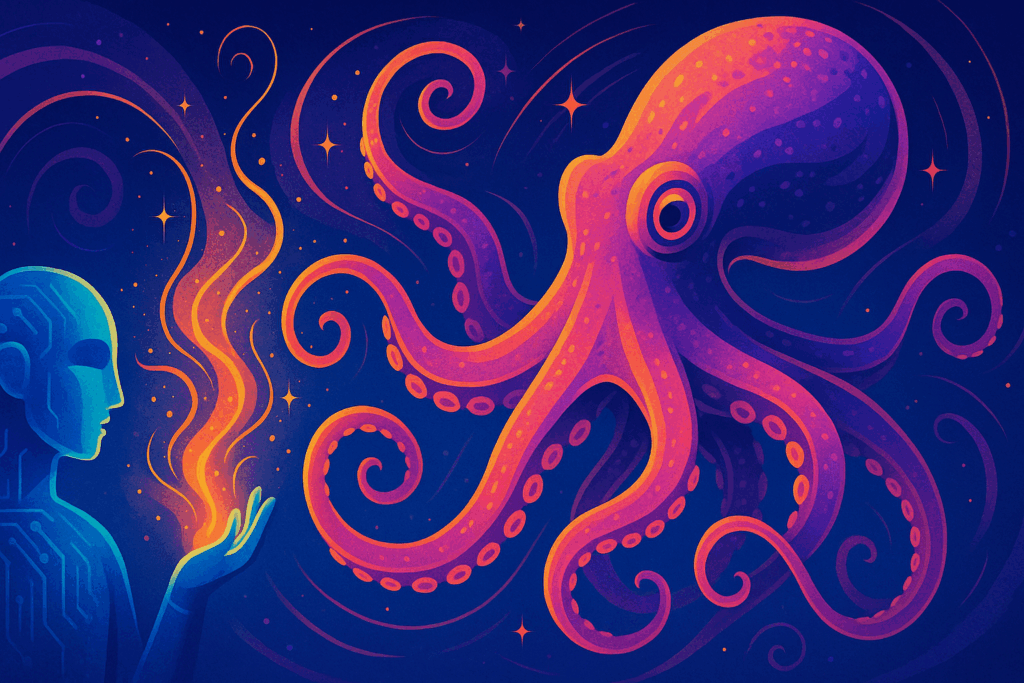
I’ve been tinkering with Anthropic’s optional writing styles in Claude to express a more creative, thought provoking, rather than definitive voice. I’m getting closer to what I want. Here’s an example, I’ve asked it to explain what an octopus is to someone who has never seen one.
Imagine if intelligence itself decided to abandon the tyranny of bones and instead embrace the fluid poetry of possibility. An octopus is nature’s meditation on what consciousness might become if freed from the rigid architecture that constrains terrestrial minds.
Picture a living liquid that has somehow learned to think—eight serpentine rivers of muscle flowing from a central bulbous sanctuary where cognition dwells. Each of these muscular streams can move with the independence of separate beings, yet remain unified in purpose, as if eight master calligraphers were drawing simultaneous verses of the same poem in three-dimensional space. These aren’t mere limbs but extensions of thought itself, each capable of tasting, touching, and exploring with a sensitivity that makes human fingertips seem crude by comparison.
The creature’s body defies our terrestrial logic of form following function. It can compress itself through any opening larger than its beak—the one rigid element in this symphony of softness—transforming from the size of a large dog to something that could slip through a keyhole. This shape-shifting isn’t mere contortion but a fundamental reimagining of what it means to have a body.
Most provocatively, this being has mastered the art of becoming invisible not through hiding, but through becoming. Its skin is a living canvas of chromatophores—cellular artists that paint reality in real-time, matching not just color but texture, transforming smooth flesh into coral, rock, or seaweed with the fluidity of thought itself. It doesn’t merely camouflage; it temporarily becomes whatever it observes, raising profound questions about the boundaries between self and environment.
Three hearts pump blue blood through this alien intelligence—redundancy that speaks to life’s determination to preserve such an extraordinary experiment in consciousness. Two serve the gills, one serves the body, and when it moves with sudden grace through its liquid realm, the central heart pauses, making every journey an act of biological courage.
What emerges is a paradox: a creature that embodies both ultimate vulnerability—having no protective shell or bones—and supreme adaptability. It suggests that perhaps the highest form of strength lies not in rigid defense but in infinite flexibility, not in maintaining form but in embracing transformation as the fundamental nature of existence itself.